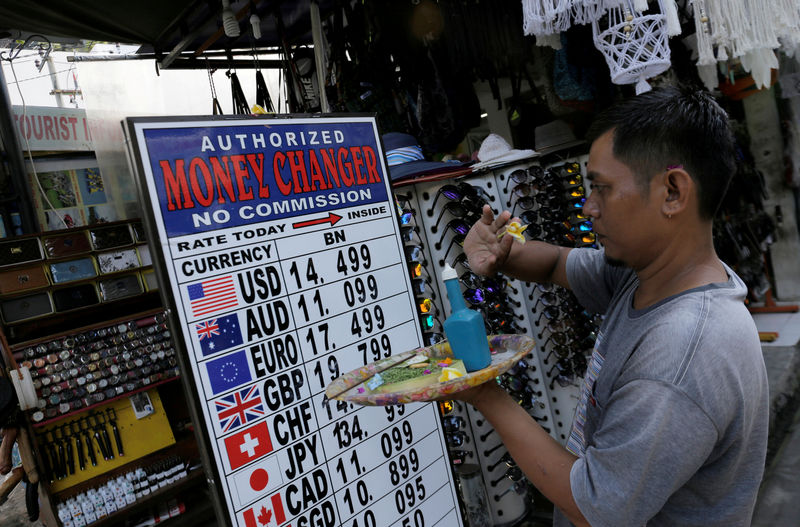By Ambar Warrick
(Reuters) - Short positions on most Asian currencies were seen unwinding over the past two weeks, a Reuters poll showed on Thursday, with traders turning skeptical of the dollar's (DXY) bull run after U.S. retail sales data came in below expectations.
Moreover, the run-up to the U.S. mid-term elections next month and related political uncertainty is also expected to weigh on the greenback, which has gained nearly 4 percent this year against a basket of currencies (DXY), thereby providing support to regional currencies.
Bearish bets on the Singapore dollar
Short positions on the Thai baht
Bearish bets on the Singapore dollar also fell to the lowest level since late May. The export-reliant economy's non-oil shipments rose 8 percent in September despite ongoing trade tensions.
The country's central bank tightened monetary policy last week and had posited a strong outlook for the economy.
Meanwhile, bears on the South Korean won
Global trade tensions have dampened South Korea's economic outlook due to its close ties with China, which accounts for a bulk of the country's exports.
Short positions on the Chinese yuan
Markets will closely watch China's third-quarter GDP data this Friday to gauge the effects of the conflict. A Reuters poll predicted that China's third-quarter growth will slow to its weakest pace since the global financial crisis with domestic demand expected to falter.
Bearish bets on the Indonesian rupiah
Weak domestic currencies had recently prompted market intervention from the central banks of both the countries, with the Indonesian central bank tightening its monetary policy in September for the fifth time since mid-May.
Bears on the rupiah raised their positions to the highest level in more than five years while shorts on the rupee eased slightly.
The Reuters survey is focused on what analysts believe are the current market positions in nine Asian emerging market currencies: the Chinese yuan, South Korean won, Singapore dollar, Indonesian rupiah, Taiwan dollar, Indian rupee, Philippine peso, Malaysian ringgit and the Thai baht.
The poll uses estimates of net long or short positions on a scale of minus 3 to plus 3.

A score of plus 3 indicates the market is significantly long U.S. dollars. The figures included positions held through non-deliverable forwards (NDFs).